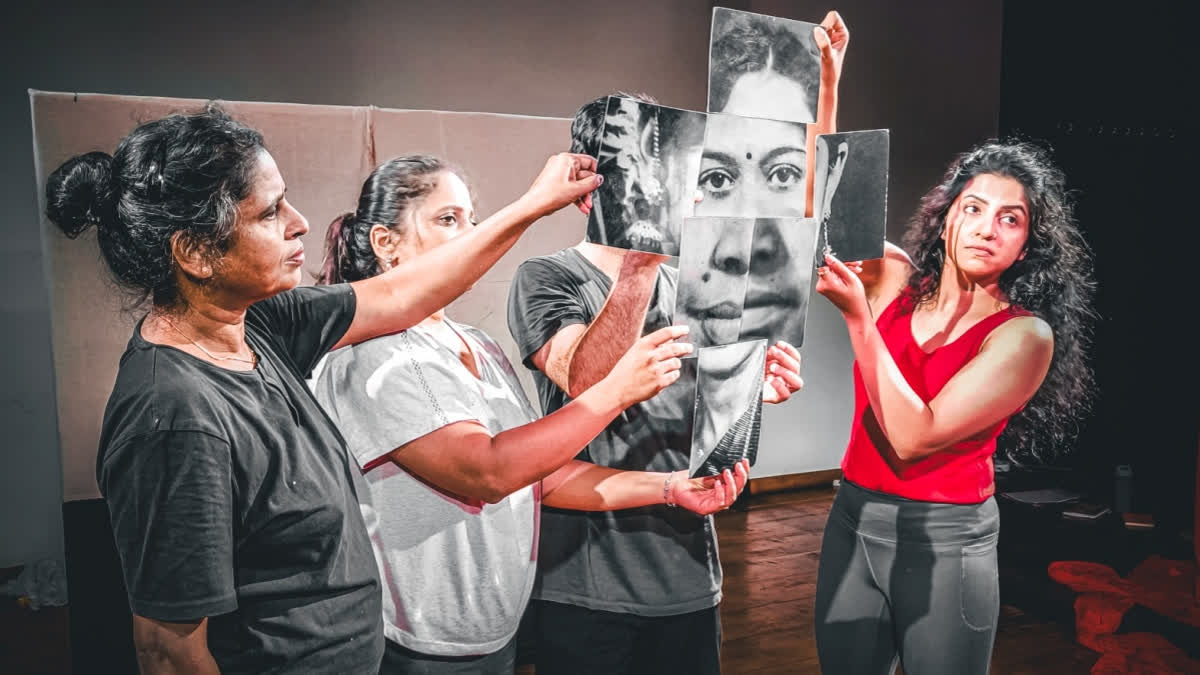What happens when the deeply personal intersects with the universally political on stage? Sharanya Ramaprakash's Project Darling dares to dive into themes of gender bias, female sexuality, and the lived experiences of women in a patriarchal society. Making its Hyderabad debut at the Manam Theatre Festival, hosted by The We_Us Collective, the play will be staged on November 17 in Gurbaksh Singh Hall at the University of Hyderabad.
Blending theatrical forms such as clowning, puppetry, and research-based storytelling, Ramaprakash has crafted a feminist work that oscillates between humour and profundity. In her words, Project Darling is “a meditation on female sexuality at the crossroads of consent and censorship.” Expect a witty, and thought-provoking performance by a gender-neutral cast tackling themes of consent, societal norms, and the joyful defiance of patriarchy.
Challenging Patriarchal Norms
Moving beyond narratives of victimhood, Project Darling emphasizes the strength and joy that women and marginalised identities derive from their experiences. The play challenges traditional notions of female sexuality and celebrates their choices unapologetically.
Ramaprakash critiques the patriarchal nature of theatre, “There’s still a lot of censorship around female bodies in these spaces. How often do we see theatre that champions new visions for women’s stories?” She calls for a shift, advocating for a dramatic form that breaks away from entrenched norms and allows for bold, authentic storytelling. "How many actors and writers do we see with a new vision for women's work? Where is that vision being championed? Many times we function within a patriarchal theatre whose rules of engagement are very much entrenched within the patriarchy so where is the championing for the spaces where we break the norms? Where are the audiences willing to see them develop a new aesthetic, language and whole new dramatic form where the stories of women and people in the margins can be contained," asks the writer stating that "improvement is needed all around."
Talking about the cast of the play, she follows a non-traditional approach of aligning actors. Rather than auditions, Ramaprakash collaborates with performers deeply engaged with the themes. “When I work with a transgender woman, there’s no audition,” she explains. “We conduct workshops for a year, and the play emerges from that process.”
The play’s diverse cast includes two male actors and a transgender performer, showing its intersectional feminist lens. Rooted in Ramaprakash’s extensive research on female sexuality in India, the production was developed over two years, evolving through essays, workshops, and drafts.
Finding new aesthetics
As the play explores bold and suppressed themes provocatively, each aspect of the piece demands reflection in some sense and it does it audaciously, playfully and in a tongue-in-cheek way. Ramaprakash, rather uses dramatic forms to express her story the way it is, especially a post-modernist pedagogy from Germany from post-dramatic theatre that discards the idea of 'dramatic arc' – the idea that women's life has no beginning, middle and end and that there are no stories of happy endings and tragedies solely. "I do not try to balance it. I think saying things as you feel is important. One of the things that we got from the process is a dramatic form to enable this," says Ramaprakash, adding that the process of finding a language in which the play is expressed is itself a way of balancing a social commentary. "We have tried to find a new language to be able to communicate new ideas and new ways of approaching the female body. Not in the same old patriarchal ways but give it a new definition whether it is aesthetics or new experiences," she explains. But does theatre play a role in influencing public perceptions around gender? We ask. "I don't think it's an artist's job to change the world. The artists' job is to deeply look at themselves and comment about the world and their relationship with it. An artiste's job is to tell a story and if that story resonates with someone's life and changes it, that's great but that's not an artiste's fundamental job," she opines.
Reflecting on experiences
When asked if her perspective on gender biases has evolved through her work as a theatre practitioner, she shares her experience. "I don't know if my perspective of gender bias has evolved but my perspective of inhabiting my body as a woman has evolved. Theatre has liberated the ways I look at myself, my relationship with society, my relationship with my body and what it can teach me. That's been a delightful process. It has helped me to look at history and reclaim my position in the world in the sense that I am a full human being and I have a right to live here. I have theatre to thank for this," muses the playwright.
Like any other art that falls victim to different opinions and criticism, Ramaprakash's Project Darling also receives different reactions from both genders. However, she puts that into perspective by quoting American painter and sculptor Frank Stella, "You See, What You See'. "Everyone looks at a particular thing based on a whole bunch of factors including where one grew up, their experiences, and cultural conditionings. Our identities are vast enough to be able to contain multitudes, that's where the hope is. If you say a straight heterosexual person watching a transgender performance, there's a space where you can respond and relate to that. That's where the art wins. Somehow, these differences in many places disappear. And when they appear, it's important to show how a woman is negotiating her life, she is so similar to me but her choices were different," she expresses as we sign off.
Read More:



